
A wall can be a barrier. It can be a structure of limitation or a source of repression. For the Inside Out Project, a wall is a canvas, and so are sides of trains, the arches of bridges and the steps leading to Brooklyn brownstones. This fascinating documentary tracks the evolution of the world’s largest participatory art project, the wildly popular Inside Out. From Haiti to Tunisia, South Dakota to the streets of Paris, French artist JR motivates communities to define their most important causes by pasting giant portraits in the street, testing the limits of what they thought possible. The power of paper turns people who feel without voice into unlikely activists by empowering them with their own images.
You May Also Like
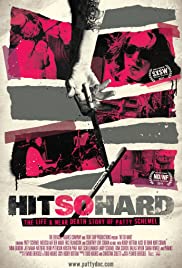
When Nirvana burst onto the scene in 1991, the music they played spoke directly to an angry and disenfranchised generation. As grunge took over MTV and radio, the music industry was transformed overnight. But just three years later, the drug-related deaths of several musicians, capped by the suicide of Kurt Cobain, closed the books on an all too brief era. Hit So Hard follows the rise to fame (and the near-fatal fall from it) of Patty Schemel, drummer for Courtney Love’s seminal rock band, Hole. Given a Hi-8 video camera just before Hole’s infamous Live Through This world tour, Patty captured stunningly intimate footage of the scene that has never been seen… until now. Not just an all-access backstage pass to the music that shaped a generation, Hit So Hard is a harrowing tale of overnight success, the cost of addiction, and ultimately, recovery and redemption.

For a decade, environmental artist, Anne de Carbuccia has travelled the world, documenting drought, water shortage, plastic-filled oceans, endangered species and cultures through her camera. She states that she ‘wanted to maintain her artistic and sensitive stance as she photographed beautiful imagery, and create a film that is accessible as it attempts to encourage people to contemplate who they are and where they come from’. The filmmaker is inspired by dedicated ‘Earth Protectors’ she meets on the sites of climate disaster and sees a glimpse of hope for the environment.
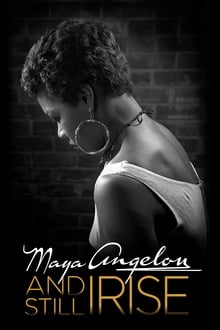
Bob Hercules and Rita Coburn Whack’s unprecedented film celebrates Dr. Maya Angelou by weaving her words with rare and intimate archival photographs and videos, which paint hidden moments of her exuberant life during some of America’s most defining civil rights moments. From her upbringing in the Depression-era South to her swinging soirees with Malcolm X in Ghana to her inaugural speech for President Bill Clinton, we are given special access to interviews with Dr. Angelou whose indelible charm and quick wit make it easy to love her.

A look at the creation of The Pogues’ song “Fairytale of New York”.
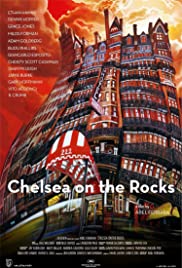
Chelsea on the Rocks celebrates the personalities and artistic voices that have emerged from New York’s legendary Chelsea Hotel. Once considered an untouchable, impenetrable tower for writers, artists, musicians and mavericks, it has been recently claimed as a boutique hotel venture for a management company that shows disregard for its formidable history. –Cannes Film Festival

After marrying a dour and disinterested lord for status, a young woman falls in love with a stage actor while her best friend from boarding school enters an affair with her husband.
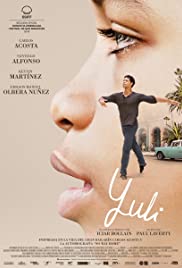
Yuli is the nickname given to Carlos Acosta by his father, Pedro, who considers him the son of Ogun, an African god and a fighter. As a child Yuli avoids discipline and education, learning from the streets of an impoverished and abandoned Havana. His father, however, has other ideas, and knowing that his son has a natural talent for dance, sends him to the National Ballet School of Cuba. Despite his repeated escapes and initial poor behaviour, the boy is inevitably drawn to the world of dance, and begins to shape his legendary career from a young age, becoming the first black dancer to be cast in some of the most prestigious ballet roles, originally written for white dancers, in companies such as the Houston Ballet or the Royal Ballet in London.
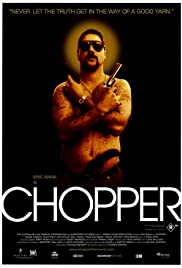
The true and intense story of Mark ‘Chopper’ Read, a legendary criminal who wrote his autobiography while serving a jail sentence in prison.
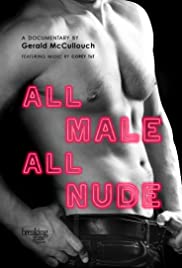
A cutting-edge journey into the taboo world of male stripping. Dive into the lives of men who work at America’s only all nude, all male, a gay strip club located in the heart of The Bible Belt.
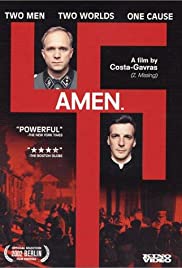
The film “Amen.” examines the links between the Vatican and Nazi Germany. The central character is Kurt Gerstein, a member of the Institute for Hygiene of the Waffen-SS who is horrified by what he sees in the death camps. Moreover, he is shocked to learn that the process he used to purify water for his troops, by using zyklon, served as a basis to kill people in gas chambers.

The incredible story of one of the more bizarre places in America, and the unusual activity that has taken place there for decades.
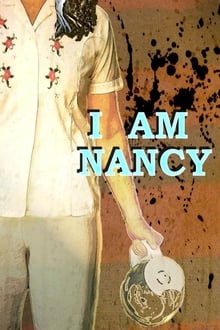
In the autobiographical I AM NANCY, the focus is squarely on Heather Langenkamp and her unique experience playing Wes Craven’s legendary teen heroine Nancy Thompson. With tongue planted firmly in cheek, Heather asks the burning question: “Why Freddymania, and not Nancymania?” After personally experiencing the Freddy Krueger marketing craze, the rise of horror convention fandom and the phenomenon of eight Nightmare On Elm Street films, Heather reflects on the relevance of heroes in this modern age of monster lovers. Prepare to put yourself in Nancy’s shoes and think about Elm Street in a whole new way.